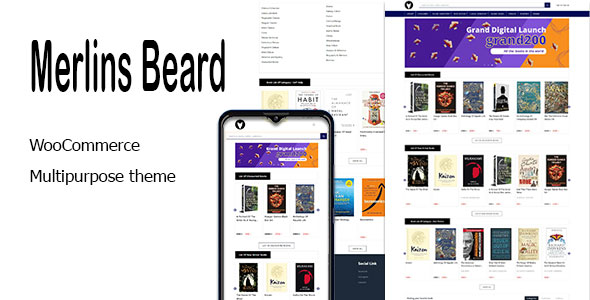Merlins Beard
An educational theme, in the context of website design, content creation, or learning materials, is a design and content style that is centered around promoting and facilitating educational experiences. It is characterized by various features and elements that make it suitable for learning and information dissemination. Here’s a description and some key features of an educational theme:
Description: An educational theme is a design and content approach that focuses on providing valuable information, fostering learning, and engaging the audience in an educational context. It’s commonly used for websites, blogs, e-learning platforms, and other materials related to education and knowledge sharing.
Key Features:
Clean and User-Friendly Design: Educational themes typically have a clean and intuitive layout, making it easy for users to navigate and find the information they need. Clear typography and a well-organized structure are essential.
Content Focus: The primary focus is on educational content, which includes articles, courses, tutorials, videos, and other learning resources. Content is presented in a structured and easily digestible manner.
Responsive Design: Educational themes are designed to be responsive, ensuring that they work well on various devices, including desktops, tablets, and mobile phones, to cater to a diverse audience.
Multimedia Integration: They support the inclusion of multimedia elements such as videos, images, infographics, and interactive content to enhance the learning experience.
Readability and Accessibility: The theme emphasizes readability, with clear fonts, sufficient contrast, and adherence to accessibility standards to accommodate users with disabilities.
Search and Navigation: Robust search functionality and intuitive navigation menus help users find the content they’re looking for quickly. Categories and tags are often used to organize content.
Interactive Features: Educational themes may include interactive quizzes, forums, discussion boards, and other features that engage learners and promote active participation.
Learning Management System (LMS) Integration: For e-learning platforms, integration with a Learning Management System allows educators to manage courses, assignments, and student progress.
Community Building: Features like forums, social sharing, and comment sections encourage discussion and collaboration among learners and educators.
Customization: Educational themes should allow for customization to adapt to the unique branding and identity of educational institutions, organizations, or individual educators.
Inhouse Project
| CMS | WordPress |
| Language | PHP |
| Library | Jquery |
| Framework | Bootstrap 5.0 |
| Font | Fontawesome |

